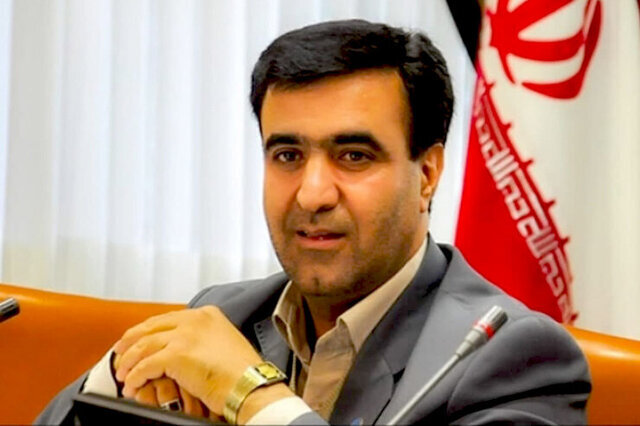Challenges facing new environment chief
Salajegheh will not succeed if he is not fully backed

TEHRAN-- Ali Salajegheh, the new chief of the Department of Environment (DOE), must grapple with serious, difficult, and even sensitive issues.
The things that he must deal with are numerous, especially as the DOE is heavily underbudgeted and suffers from a lack of enough experts and workforce.
Reportedly, Salajegheh has blamed inexpert persons as the most important challenge facing the DOE. It has been also reported in media outlets that Salajegheh is a critic of the administrative structure of the department.
It is a source of hope that Salajegheh’s specialty is related to water and that 160 university professors and researchers in areas of environment and natural resources had written a letter to President Ebrahim Raisi calling on him to appoint Salajegheh as the head of the department.
It is also heartening that he has been a member of the Engineering Society of Water Resources in Iran.
According to certain reports, Salajegheh had asked Raisi, when he was the Judiciary chief, that the DOE must enjoy strong power in advancing its goals.
In light of Salajegheh’s views and his specialty much is expected of him. However, it is quite clear that he will face serious hurdles and opposition in advancing his projects. This is because the protection of the environment, especially water conservation, is not still considered a national issue.
Like his predecessors, his views and concerns will be overruled by ministers of labor, agriculture, and industry in the cabinet, otherwise, the president strongly supports him. In such a situation, parliamentarians and all those who have a say or voice should help the new environment chief in his difficult job.
If he is not fully backed, he will not succeed to ban the growth of certain water-intensive crops, such as rice and onion, in provinces other than those lying on the shores of the Caspian Sea. If he is not supported, he will certainly be overwhelmed by influential persons who have been destroying forests and turning them into villas.
If the ministries of agriculture and energy don’t cooperate, it will not be possible to encourage farmers to replace water-intensive crops with alternative ones.
The new DOE chief and ministries of agriculture and energy must cooperatively convince farmers that if they continue to use water in such a way, then they will face problems to cultivate crops such as wheat in the not-too-distant future. This is especially because Iran is heavily affected by climate change and that the country is located in a semi-arid area on the Earth.
If other ministries and state bodies don’t help him in putting a brake on the cultivation of water-intensive crops, the country may face security problems, like what happened recently in Khuzestan province.
Salajegheh should set certain priorities for his organization. For example, he should pay special attention to water desalination; prevent the use of wastewater in irrigating crops; stop the use of plastic bags which is polluting rivers, jungles, farmlands, valleys, and mountains; raise public awareness about the centrality of the environment; seek the help of the public and environmentalists in protecting the environment; force automakers to turn to electric cars; and many other essential things.
It is true that realizing these goals is difficult in times of crippling illegal sanctions on the country, but it must be borne in mind that environmental degradation will prove highly costly if the pollution of the environment is not considered a crime and is not dealt with, accordingly.
Leave a Comment